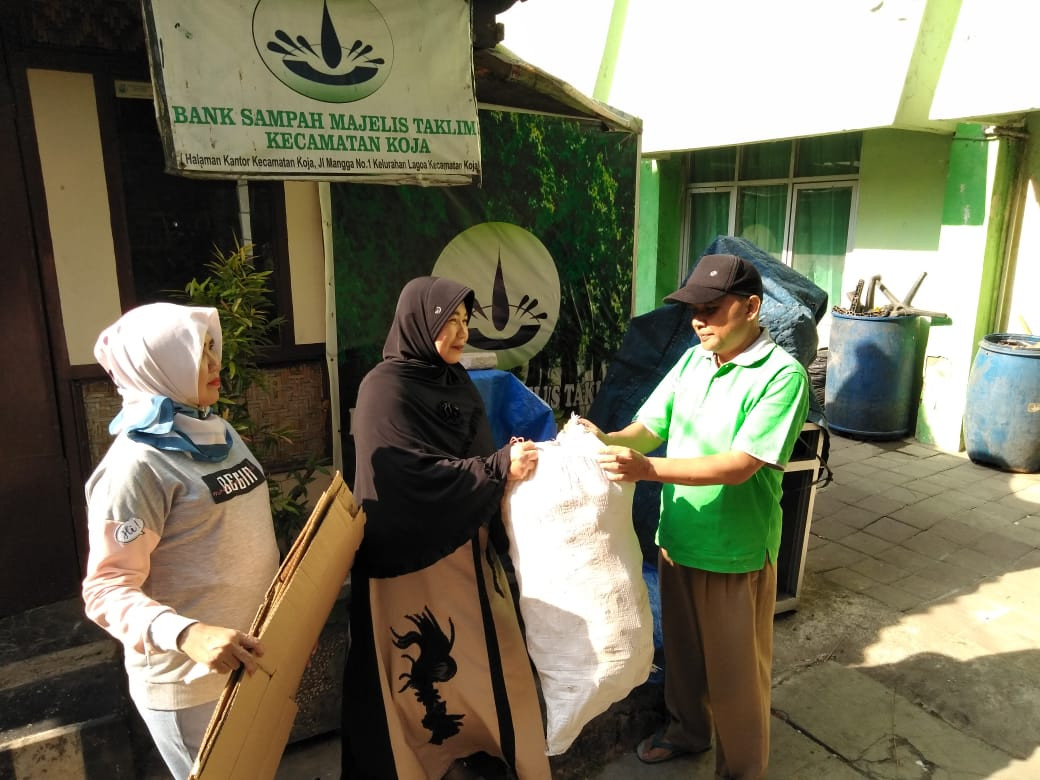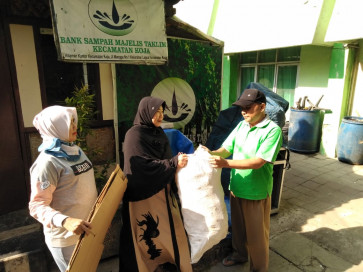Popular Reads
Top Results
Can't find what you're looking for?
View all search resultsPopular Reads
Top Results
Can't find what you're looking for?
View all search results‘We can’t put our money in garbage’: Philippine cities share best practices in waste management
As Indonesian cities struggle to implement their zero waste initiatives, San Fernando, a city in the Philippines, has cut down on waste management costs thanks to a detailed and effective system.
Change text size
Gift Premium Articles
to Anyone
A
s Indonesian cities struggle to implement their zero waste initiatives, two cities in the Philippines, have cut down on waste management costs thanks to a detailed and effective system.
The director of the Bioscience and Biotechnology Development Foundation (YPBB), David Sutasurya, who has been assisting several local administrations in West Java in developing policies to implement the initiative, said the lack of a clear national mandate on decentralized waste management resulted in slow progress toward reaching zero waste goals.
He addressed the issue during the International Zero Waste Cities Conference organized by the Global Alliance for Incinerator Alternatives (GAIA) and the Consumer’s Association of Penang, held on Monday and Tuesday in Penang, Malaysia. The event gathered officials and organizations from various regions in support of the initiative, including those of Bandung and Cimahi in West Java.
In Bandung, the capital city of West Java, a source waste segregation system has covered 14,720 residents this year, an increase from the 8,815 covered in 2018. With an average rate of compliance at 30 percent, waste diversion was recorded at below 20 percent among the households taking part in source segregation efforts, according to data from the YPBB.
The numbers pale in comparison to those of San Fernando, Philippines, which has a day population of around 1 million and observed a waste diversion rate of 55 percent in the first six months of its adoption of a zero waste principle in 2013. The city’s current sorting rate is at 80 percent, with a reported compliance rate of 93 percent in all 35 of its barangays – equivalent to Indonesia’s subdistricts – according to GAIA’s zero-waste case study report on the city.
“The difference is, in the Philippines, they have a clear mandate on decentralized waste management and source segregation in their national waste management law. Whereas in Indonesia, we only mention that people must reduce and handle waste in an environmentally sound manner,” David said during a panel discussion, citing Law No. 18/2008 on waste management.
The GAIA report notes that the Philippines had enacted the 2000 Ecological Solid Waste Management Act, which puts the prime responsibility of waste management on the barangays.


















